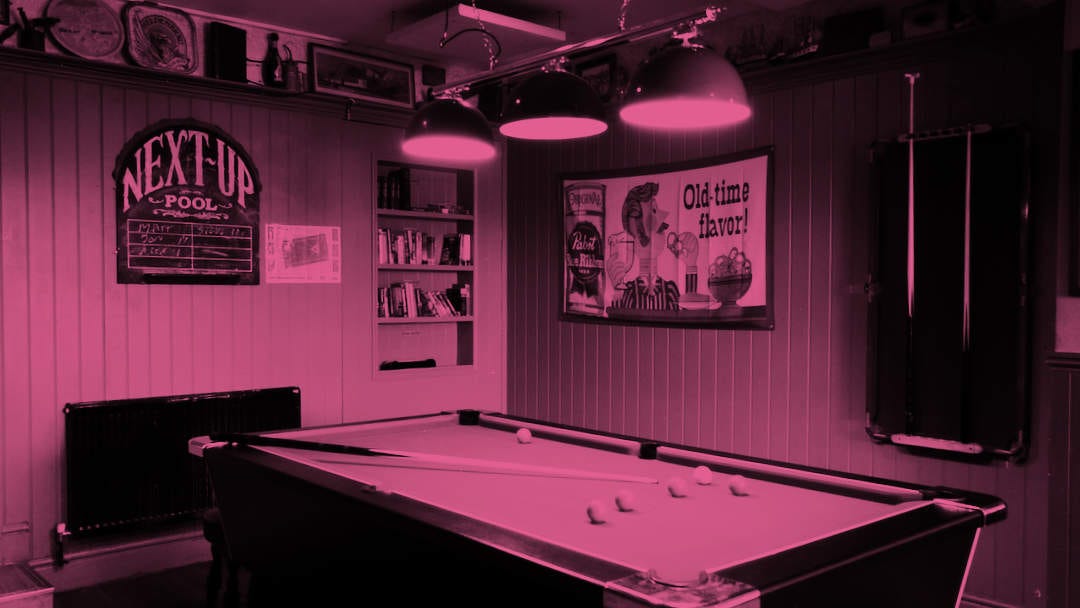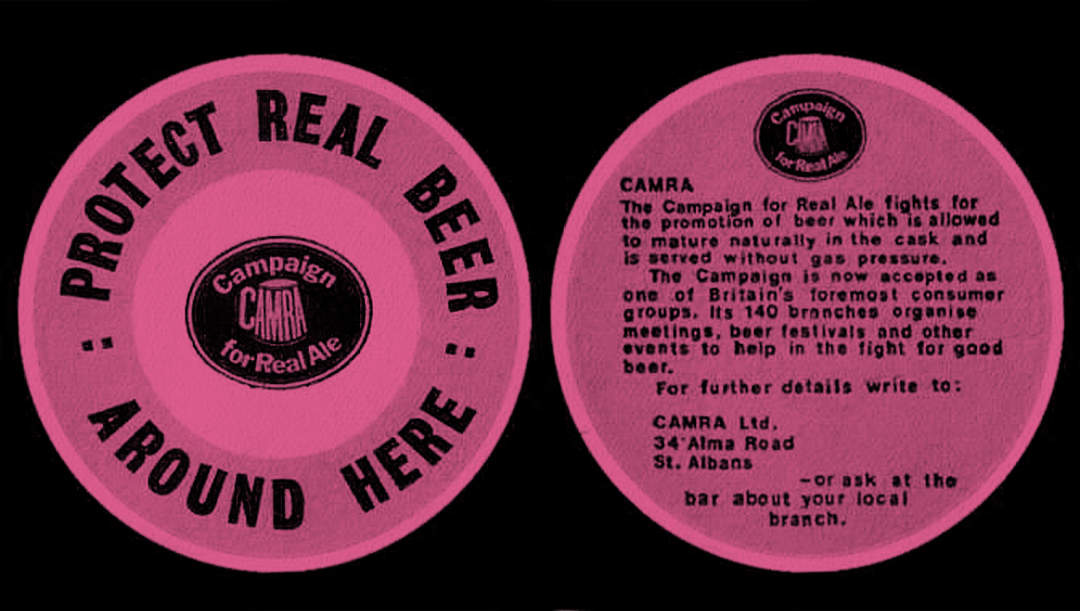Reinvention and redundancy
Pubs, breweries and, uh, massive campaigning organisations can reinvent themselves. Or they can declare themselves redundant.
The George & Dragon on Church Road in Bristol is an interesting pub. A few years ago it felt (we can’t think of a better way to put this) pretty ‘flaggy’.
“But they’re just flags,” you cry, “and there’s nothing wrong with a bit of patriotism.” Well, OK, but posters advertising skinhead ska gigs were another signal of note. You send signals hoping to be understood, and we think we understood these.
Then it got refurbished and relaunched as something more typical for East Bristol – vaguely hippyish, with a range of local beer, and prominent ‘Everyone welcome!’ signage. But, welcome though they might have been, nobody seemed to arrive, at least for a while.
It takes time for a pub to change its identity and reputation. The old regulars drift away (as perhaps the new management hope they might) while the hoped-for new customers still think of it, if they think of it at all, as that pub they don’t go near.
We had a couple of sessions where we were the only drinkers in the place, accompanied by the sound of bored bar staff watching videos on their phones.
Continued effort has paid off, though, and something seems to have clicked in the past year. Now, the pub is invariably busy and buzzy, not least because of its pool table. On our last few visits we’ve observed it in constant use by one group of serious or semi-serious players.
On our last visit, on a rainy Tuesday evening, six men of various ages were playing each other in various combinations. One had a special pool playing glove. A couple of the others had brought their own cues in fancy carrying cases.
At the other end of the pub two musicians (accordion, fiddle) were feeling their way through a selection of tunes from Jewish, Turkish and Balkan tradition. If skinhead ska has an opposite, it might be this.
The George & Dragon isn’t perfect. As with other pubs on Church Road, the cask ale can be sublime one week and pretty rough the next – though a fridge filled with Augustiner and Schlenkerla helps on that front.
What it is, though, is what we need: a local boozer that people actually use, shaped to serve the people who actually live nearby, whoever they might be.
Knowing when to quit
We’re not saying the Campaign for Real Ale (CAMRA) should be wound up. But we are asking: do people in charge of strategy at CAMRA have a sense of what the end might look like?
Every Saturday, as you might know, we publish a round up of the best writing about beer and pubs from the preceding week. For the past year or so, we’ve been following that up on Patreon with what we call ‘footnotes’ – usually some commentary on the stories we’ve included in the round up, plus some links that didn’t quite make the cut.
In a recent edition of footnotes, after the news that CAMRA was in some financial difficulty as a result of poor turnout for the Great British Beer Festival in August, we wrote this:
We hope it’s not the beginning of the end but, rather, the start of a meaningful reconfiguration of the organisation into something less enamoured of its own massiveness… Having said that, it is also fine for organisations to cease to exist. There is sometimes a sense that CAMRA rolls on because the continued existence of CAMRA has itself become a question of heritage preservation. This is something Ray talks about at work quite a lot when involved in designing new services. Their purpose is to help service users, not to perpetuate their own existence.
On that last point, what that means in practice is that when a service or organisation is being set up, asking questions about when and how it will be shut down.
CAMRA was founded as a bit of a joke back in 1971 and of course its founders didn’t sit down and carefully workshop what ‘mission complete’ might look like. Those debates did start to happen surprisingly early, though, notably after Watney’s caved in and started brewing cask ale again.
There was a broad consensus behind CAMRA’s founding mission, which was relatively simple: mither big breweries so they’d keep producing cask ale, and stop pushing keg beer so hard.
Once it felt as if that might have been achieved, at least to the satisfaction of many less committed members, CAMRA entered a never-ending debate about its purpose.
We must save pubs! We must promote microbreweries! We should champion good beer in all formats! It’s about socialising! A watchful eye must be kept on the brewers! And so on.
There’s an alternate history where:
CAMRA did have clear, stated measures of success
it was wrapped up neatly in about 1982
successor organisations emerged around specific issues or causes
Having said all of that, it’s much harder to build an influential organisation (or political party…) from scratch than to keep an existing one going.
Look back at the various attempts to launch craft beer focused alternatives to CAMRA about 15 years ago for evidence of that. You don’t hear much about them these days, do you?
Further reading: ‘A bitter lesson in Birmingham’ by Peter ‘Tandleman’ Alexander
On the blog
We asked “Is BrewDog Punk IPA still a decent beer?” It’s been a while since we did any blind tasting and this reminded us that (a) it’s kind of fun and (b) the results are often surprising. We’d recommend The Beer Nut’s recent post on BrewDog as an interesting follow up.
Our old local, The Drapers Arms, ran a small, localised billboard campaign this summer – and it seems to have been good for business. By way of an update on the blog post, when we popped into The Drapers, landlord Garvan told us he reckoned there was something like an 11% increase compared to last year’s figures, which he thought probably could be attributed to the billboard and attendant press coverage.
Digging around in our collection of old brewery in-house magazines looking for one thing, we found something else. The transcript of a speech given by one of the directors of Truman, Hanbury & Buxton in 1933 highlighted the various ways in which the behaviour of pub customers have always been a problem for pub operators – even if they’re also the source of all that lovely money.
Sometimes, blogging works this way: we had half a thought to write something inspired by Dave Morton’s comments on the Lidl Oktoberfest gift set; and another half a thought to write about our experience at Lost & Grounded’s Oktoberfest event. Then we realised, hey, that almost adds up to a whole thought! Hence this blog post about Oktoberfest in the UK.
There were also the usual weekly round-ups of news, nuggets and longreads; footnotes on these just for Patreon subscribers; and a few other bits on Patreon, too.
We’re also still posting on BlueSky where we’d welcome more beer-related stuff. At the moment, it’s rather dominated by US politics. Do come and say hello, and post pictures of pubs and pints and that, to even things out.
And that’s it, that’s your lot, until next month.
Cheers!
Jess & Ray






You’ve nailed it here on CAMRA. Looking at comments on various social media threads after the cancellation of the festivals, I think there is a general consensus outside the organisation in beery circles that CAMRA is redundant in its existing form. Whilst there are good people trying to effect change from within, the sheer size and structure of the organisation, the varying attitudes and wants of its core demographic, and the task at hand, makes it a very daunting and unrewarding challenge to take on. I just can’t see it reinventing itself.